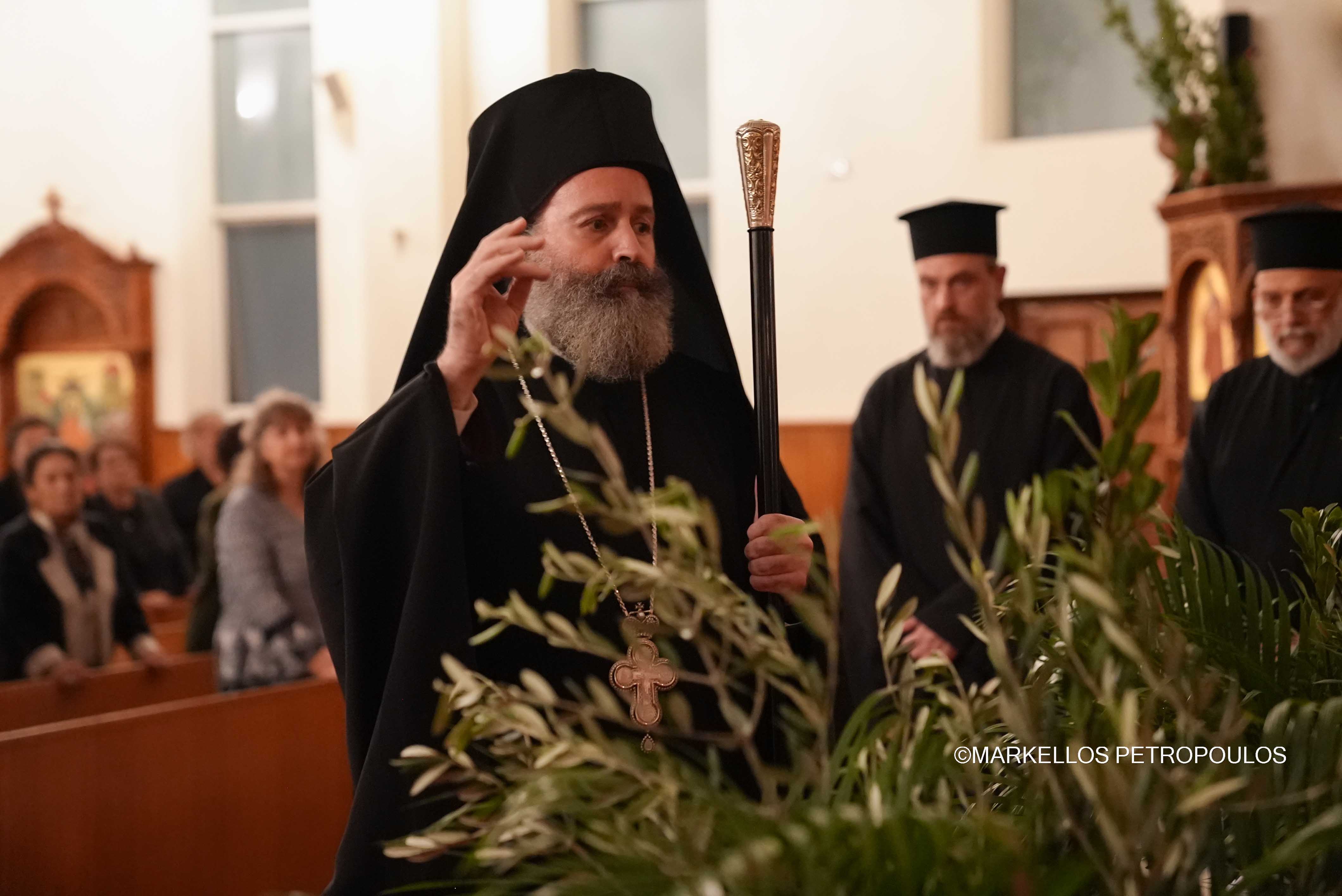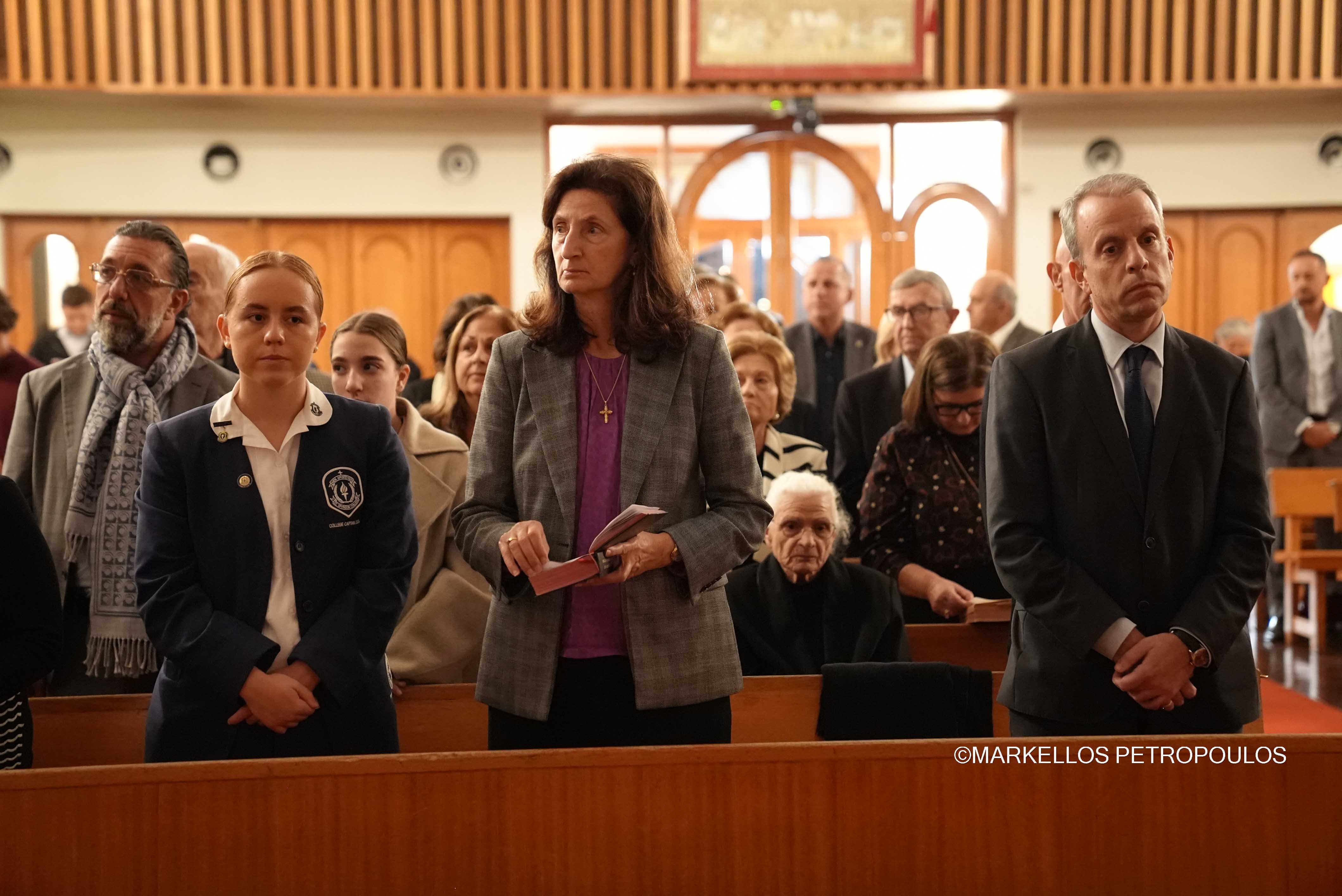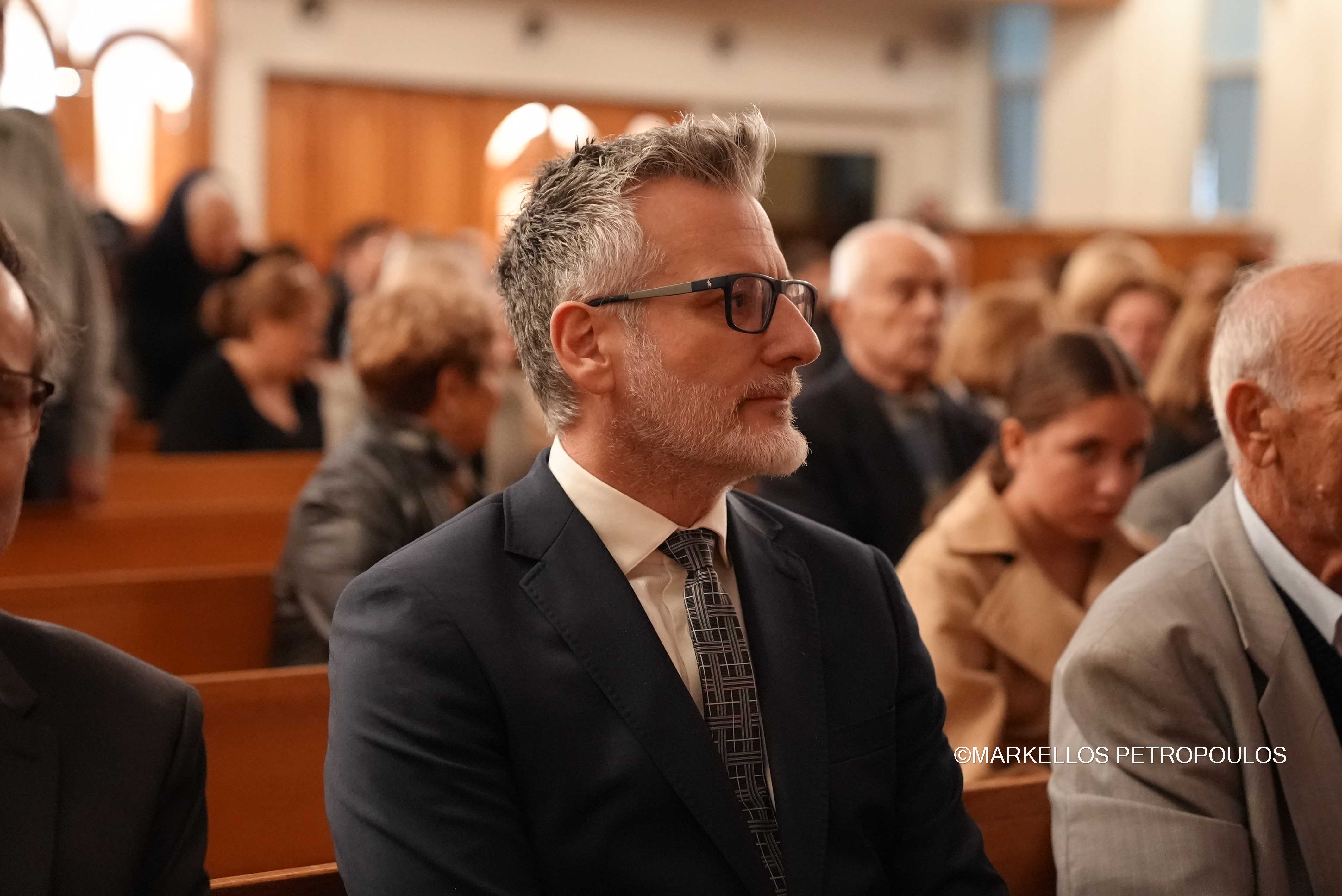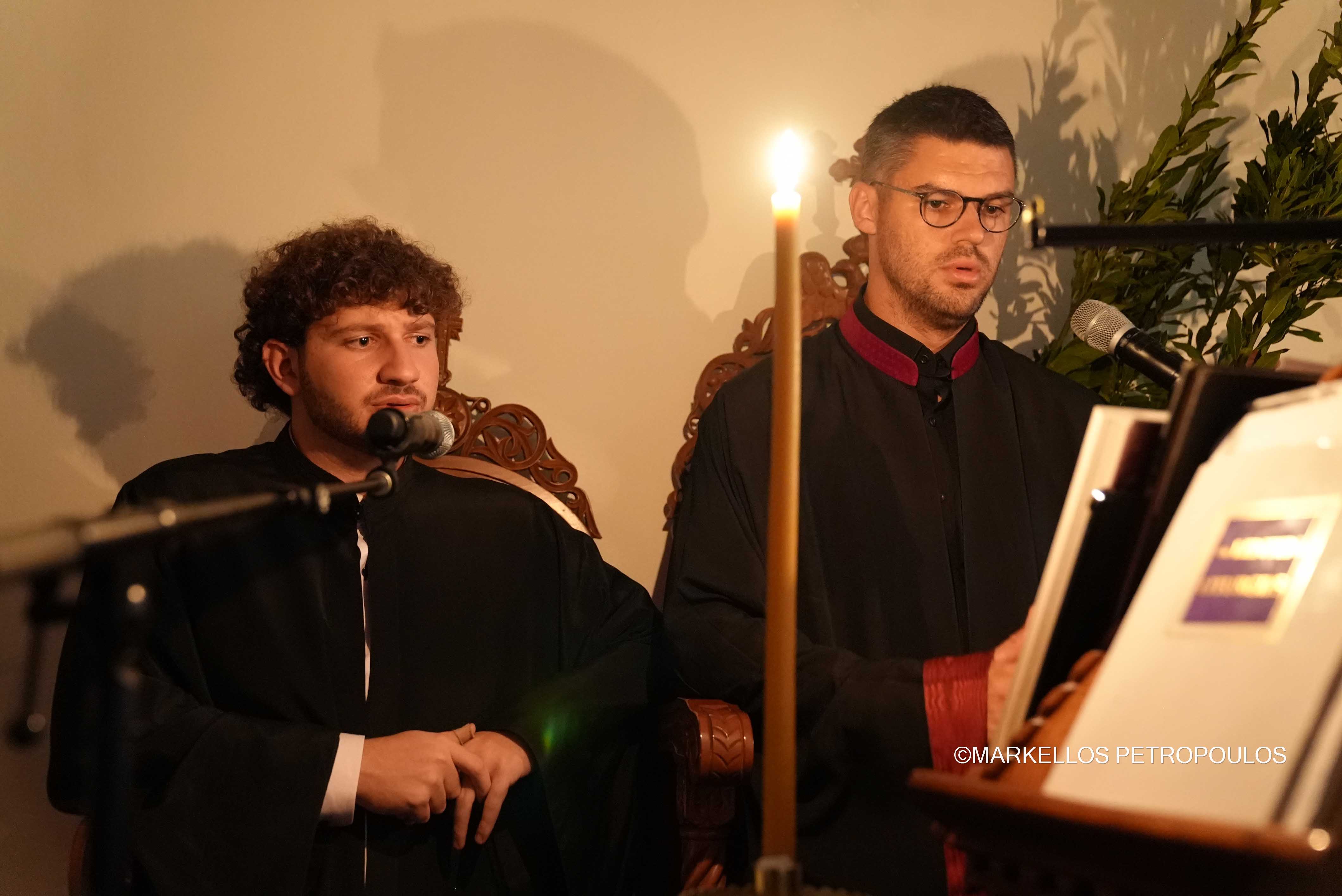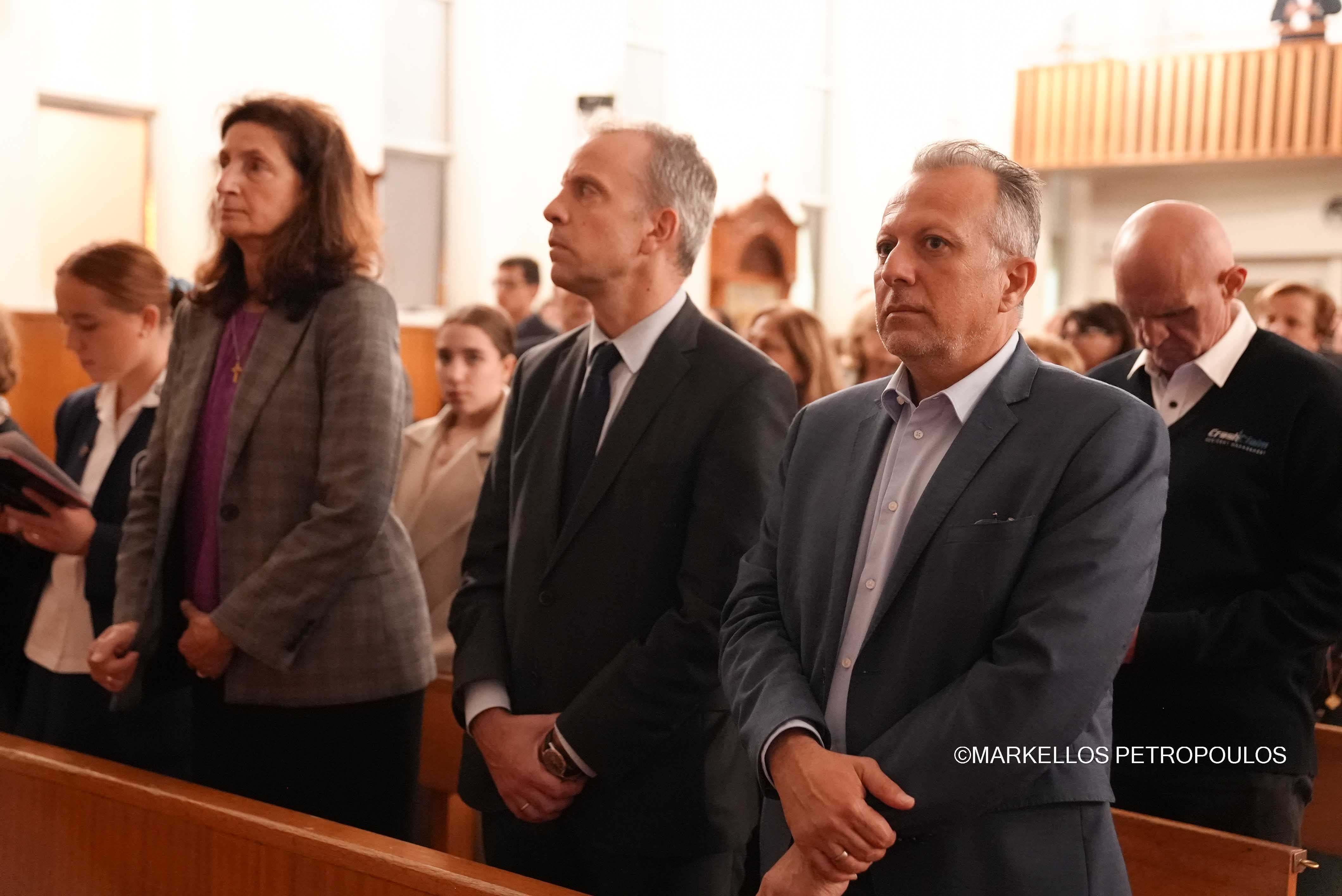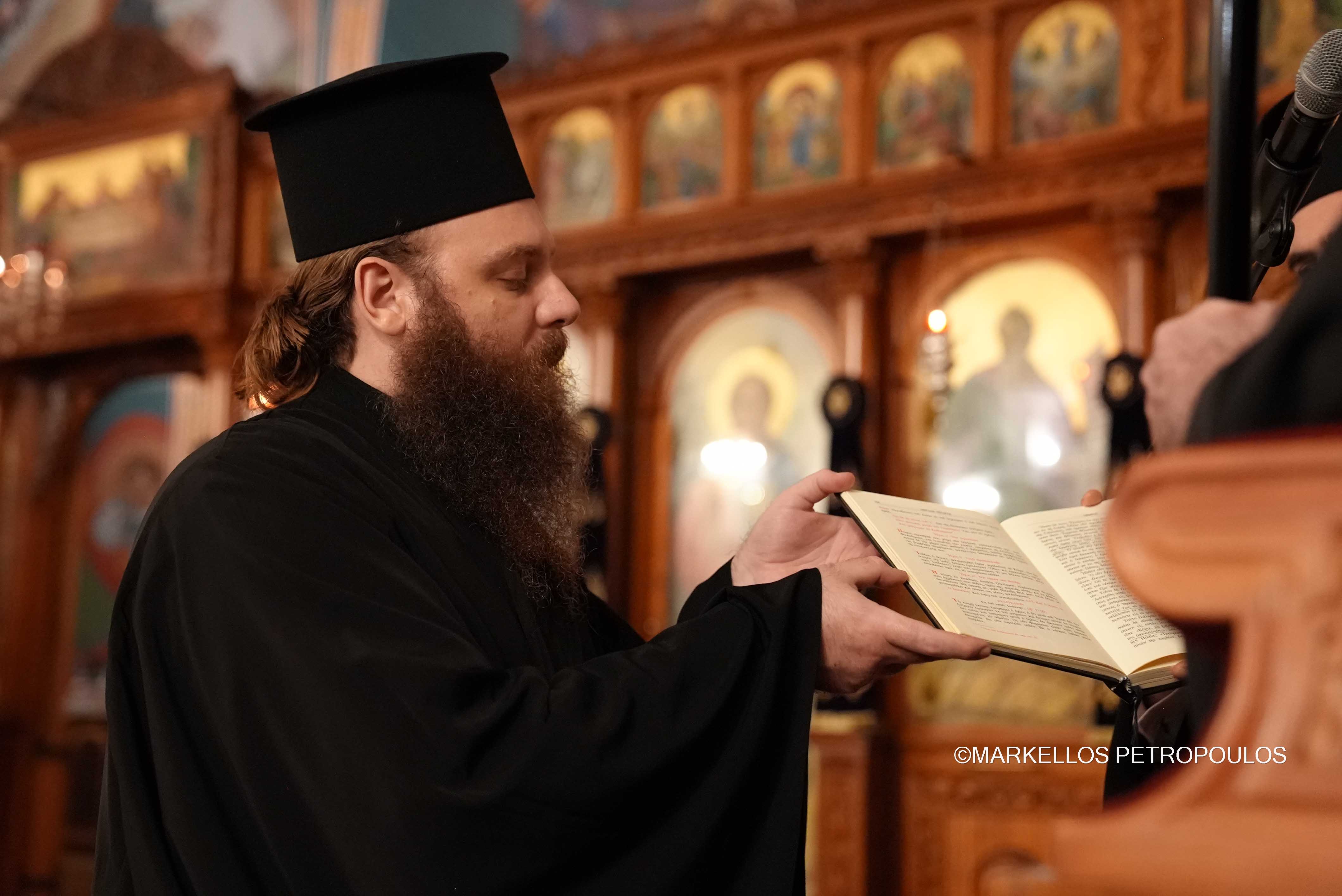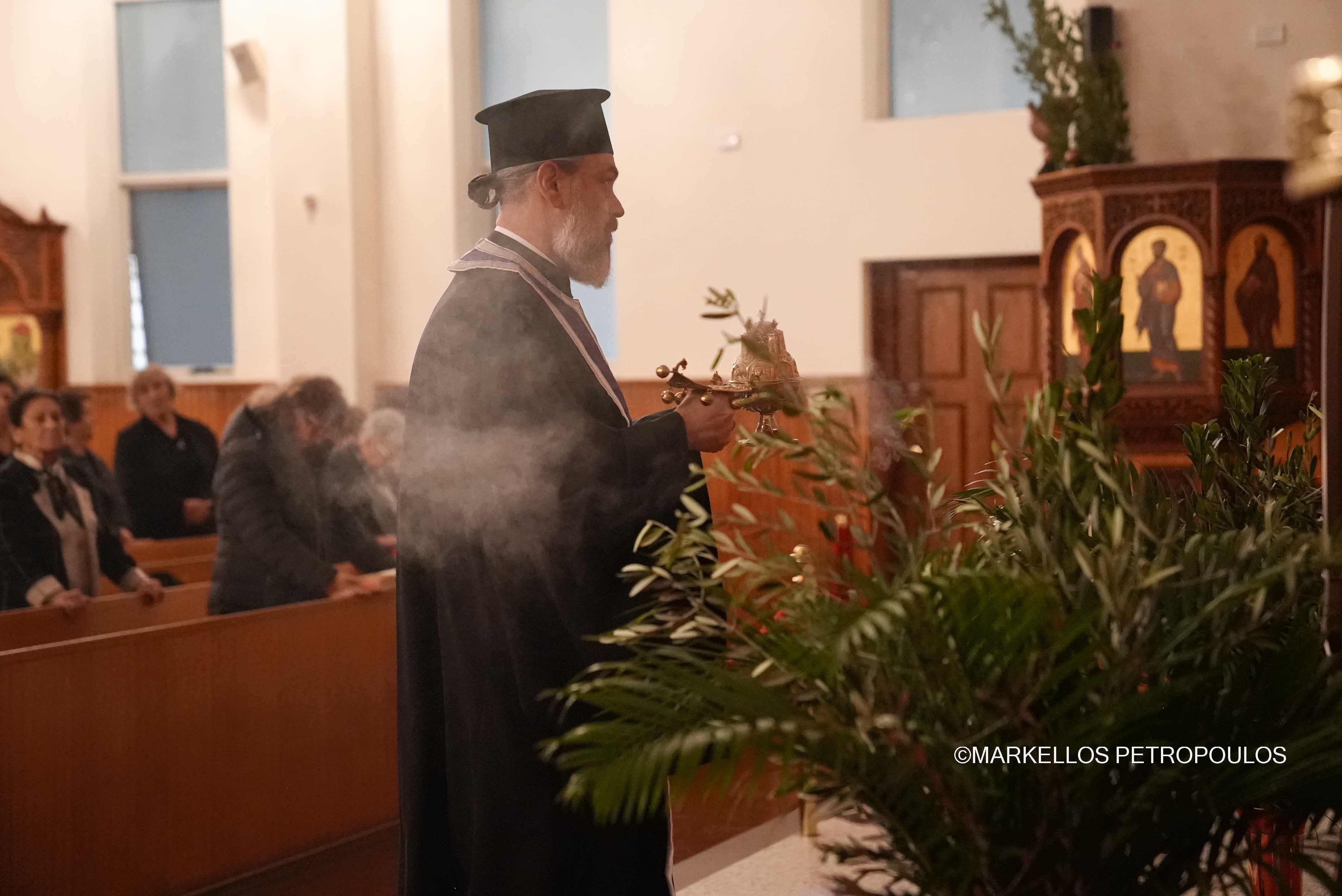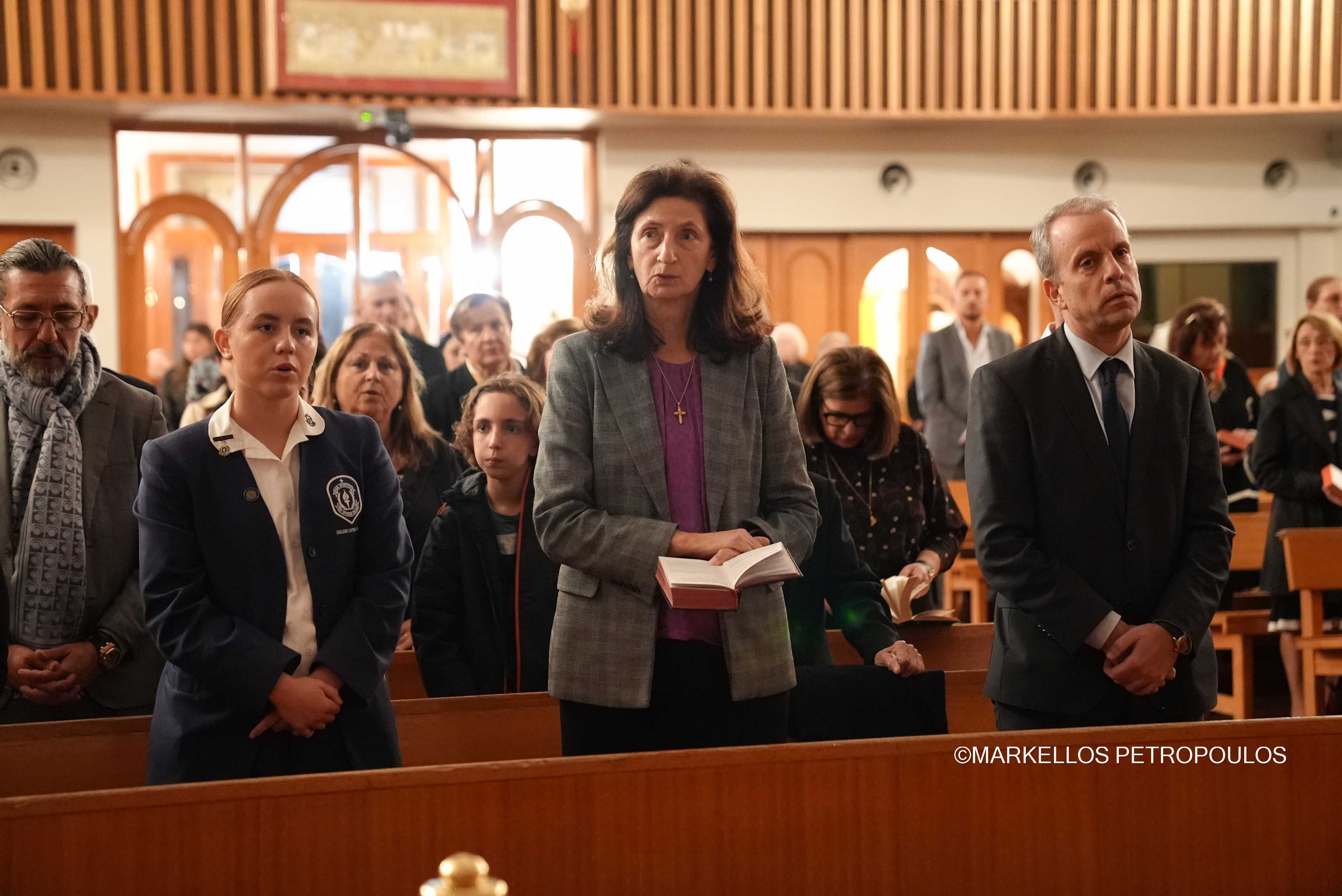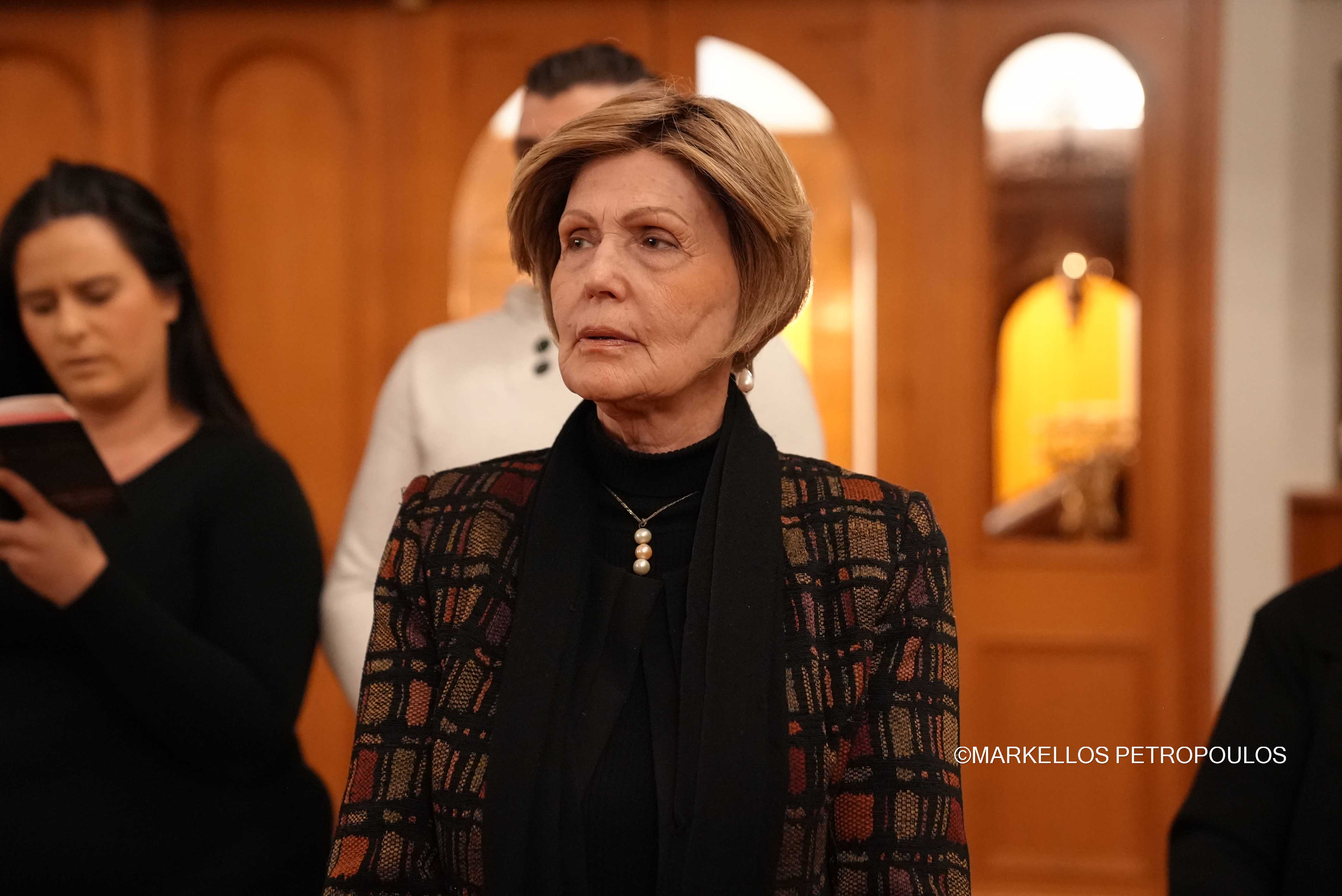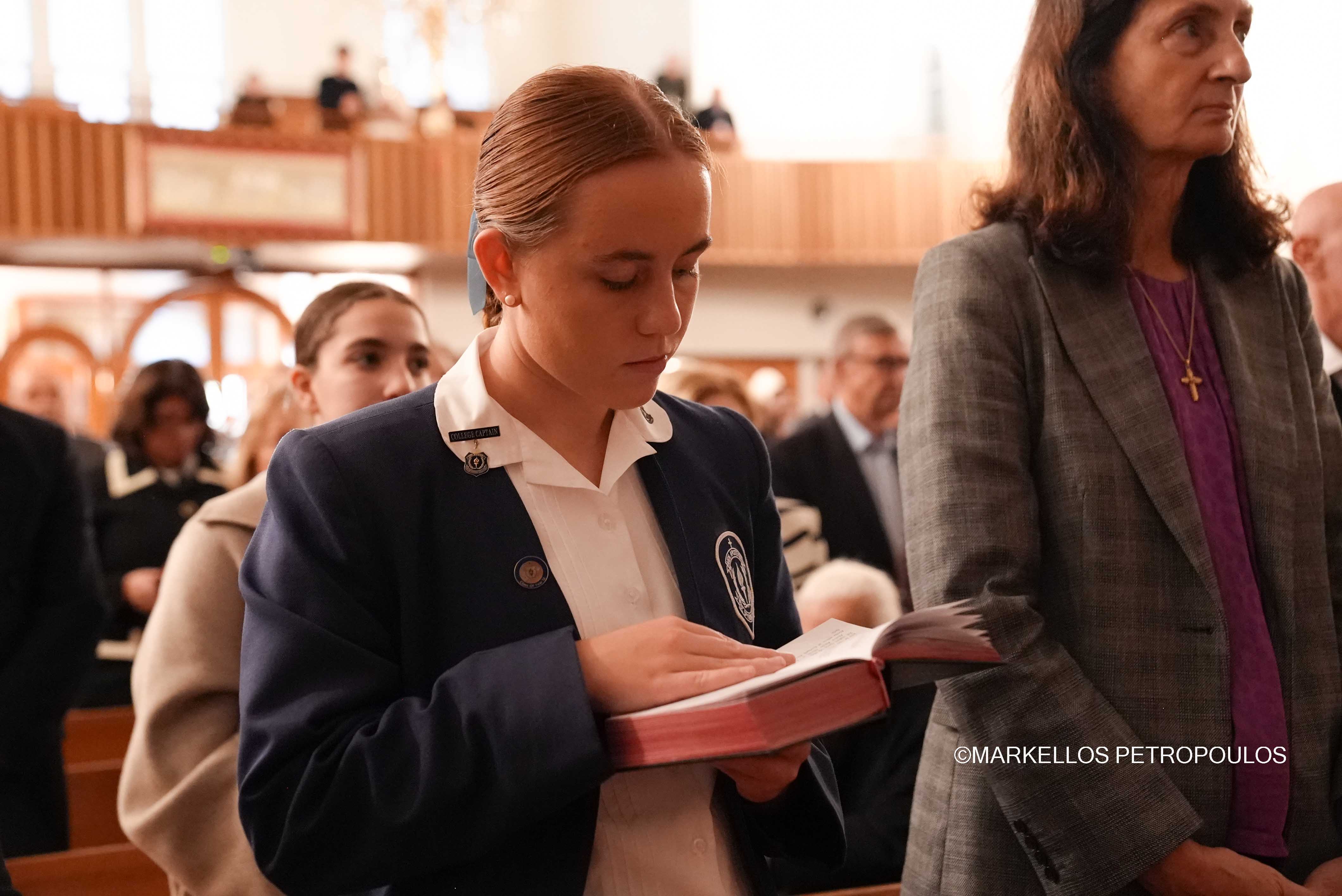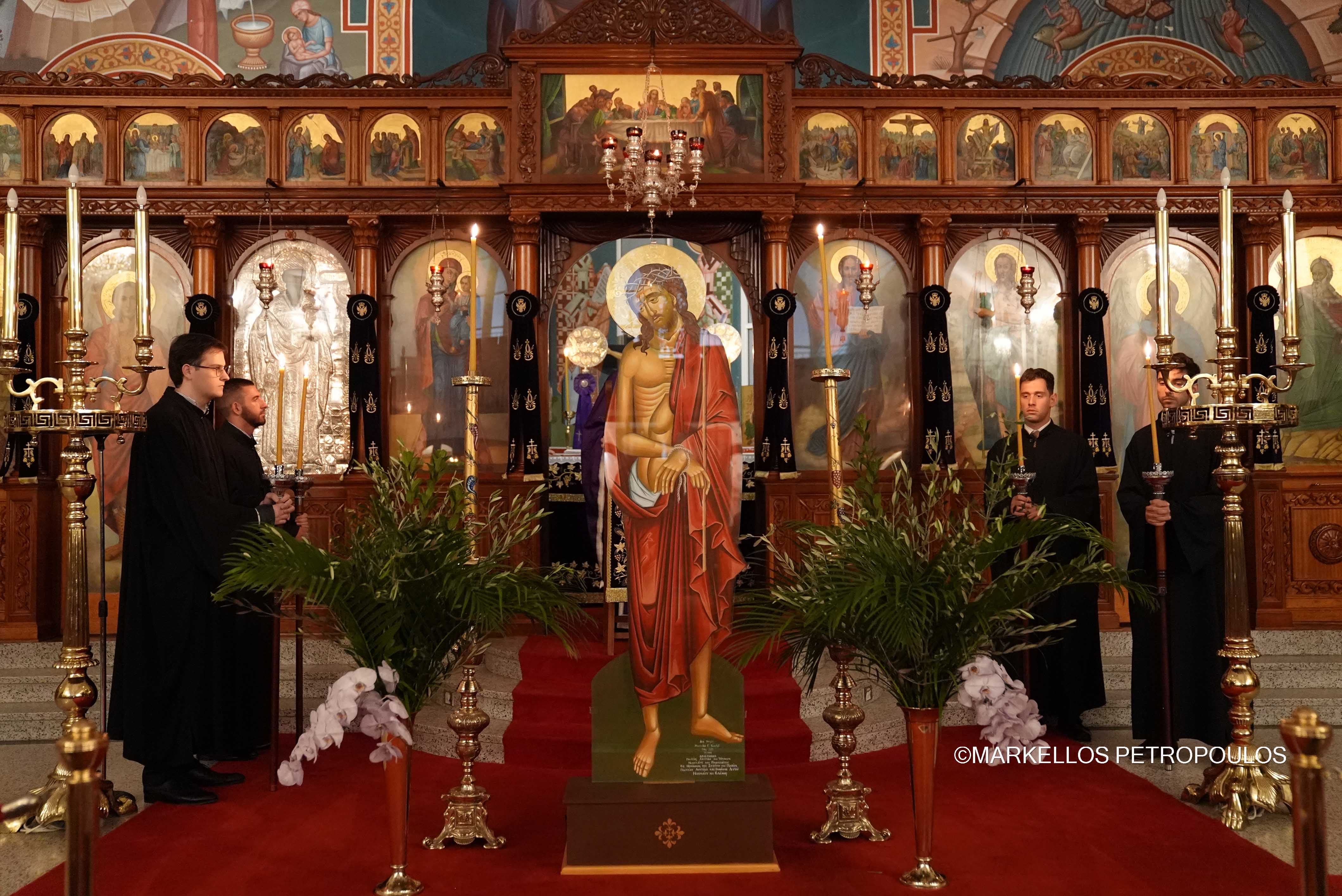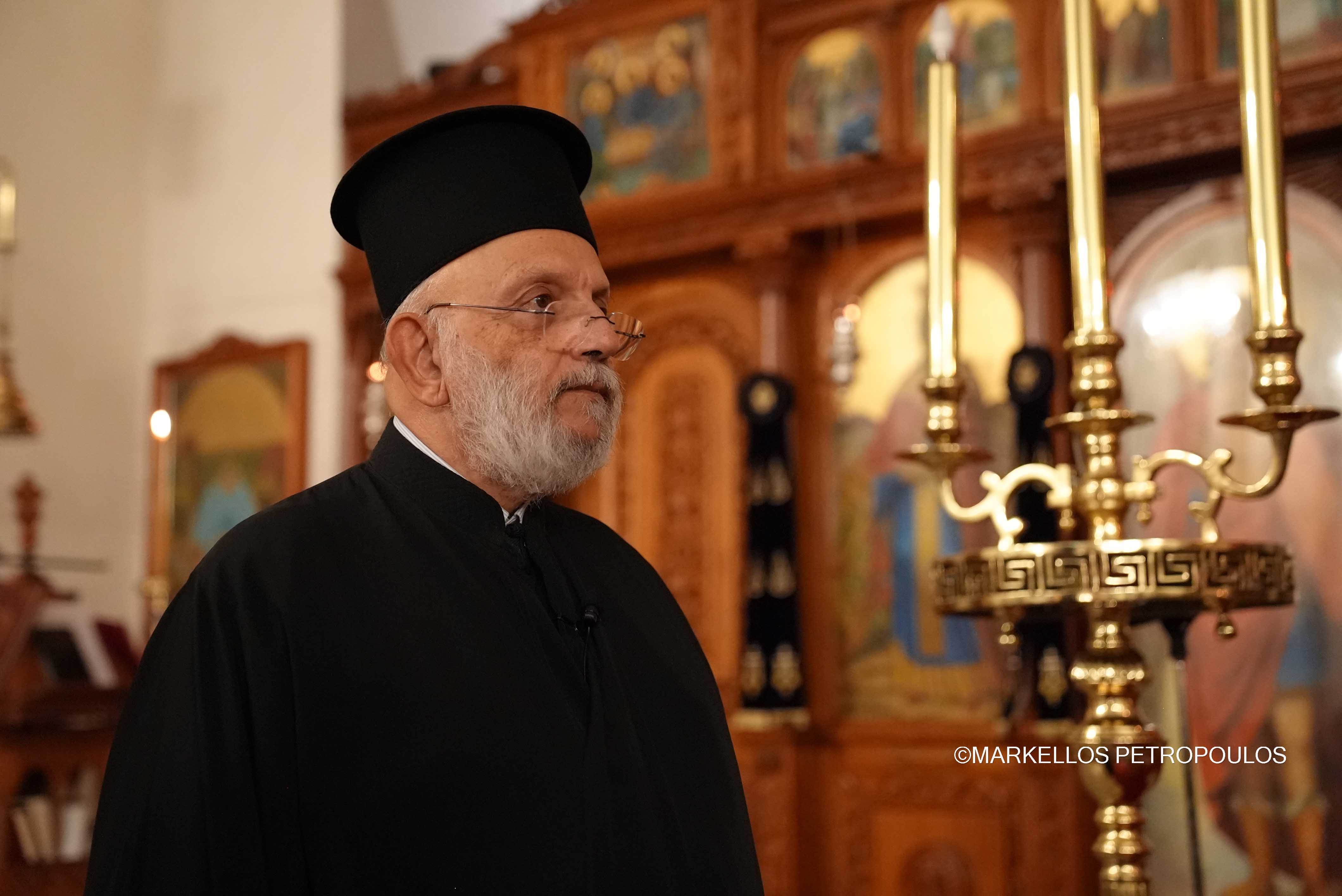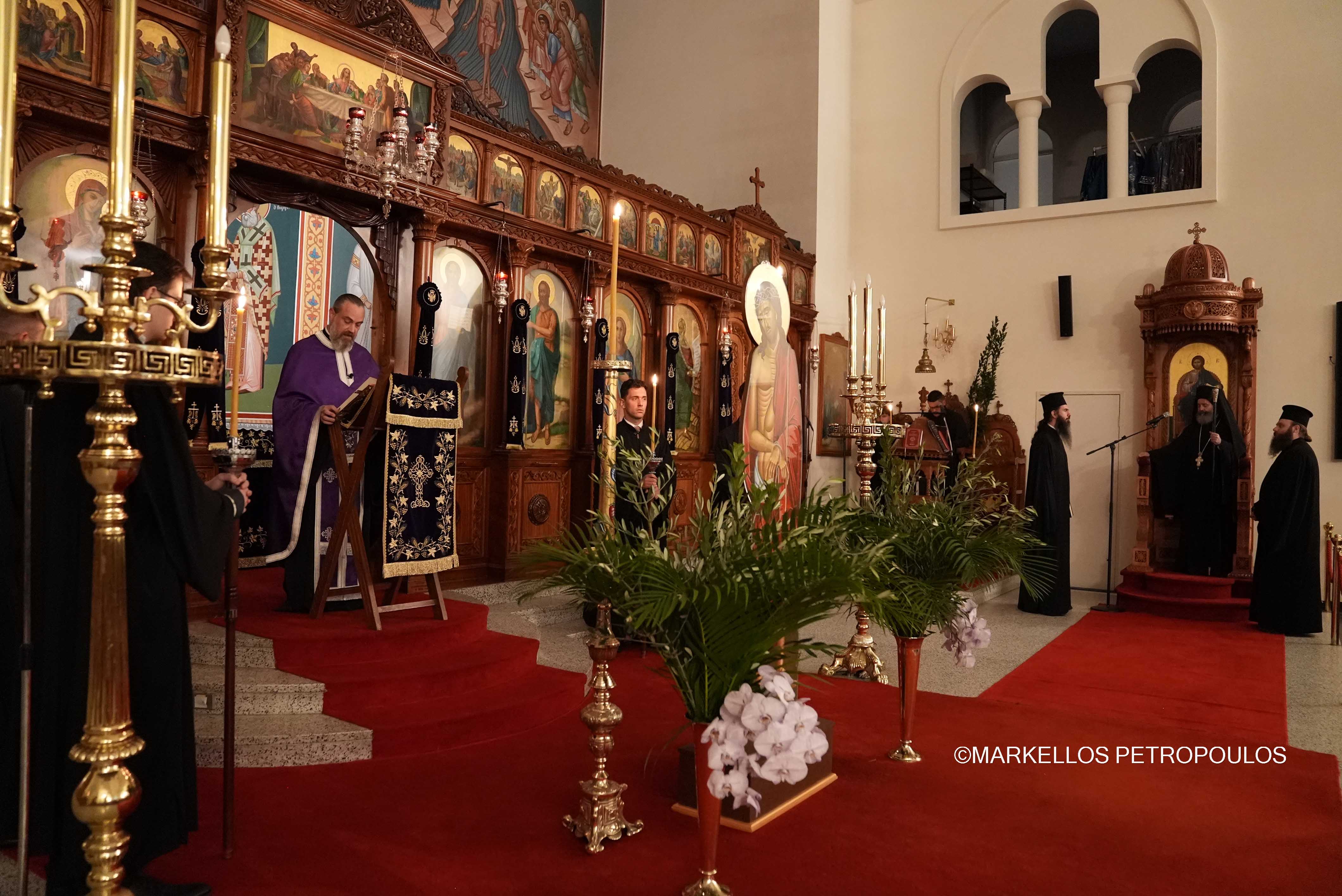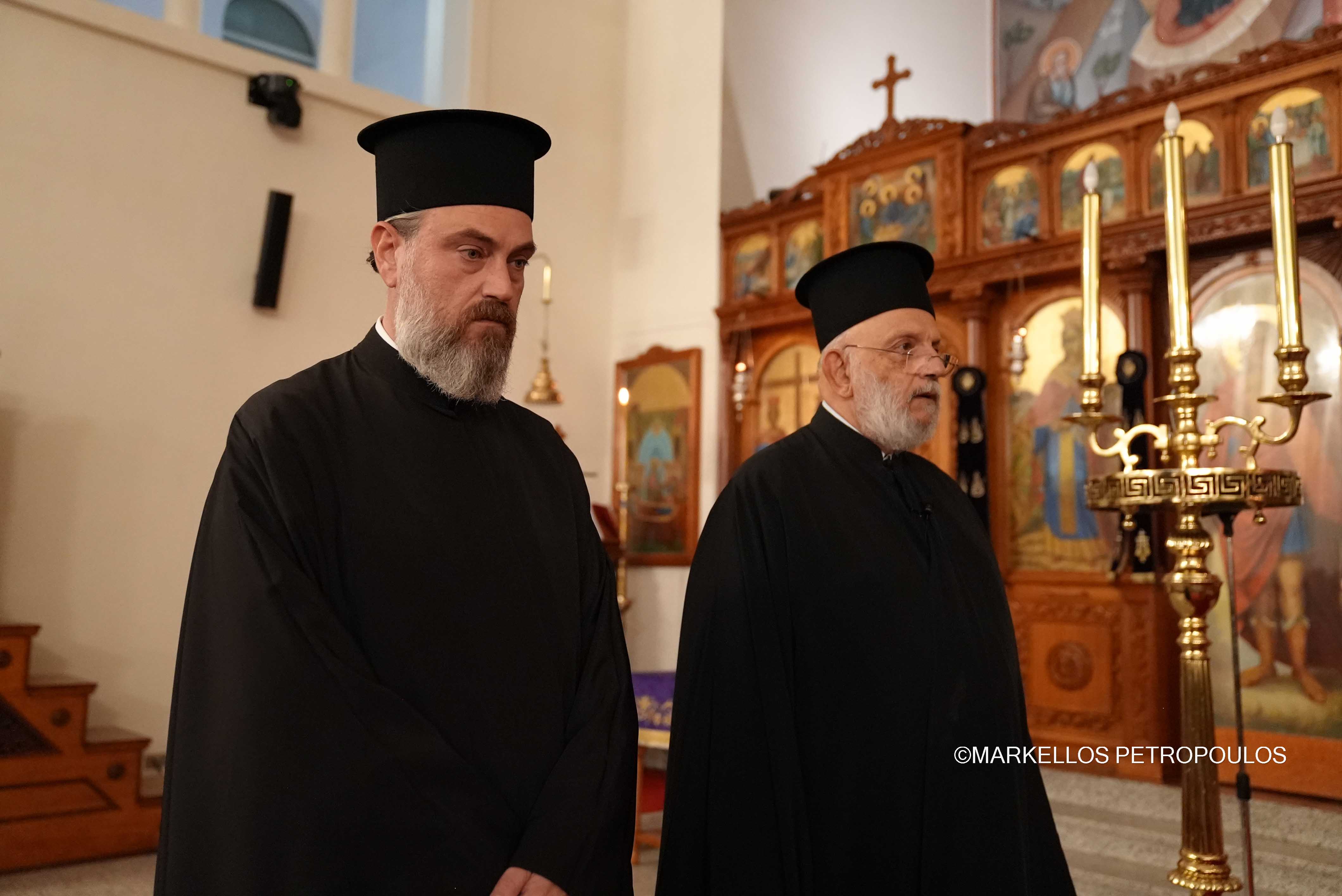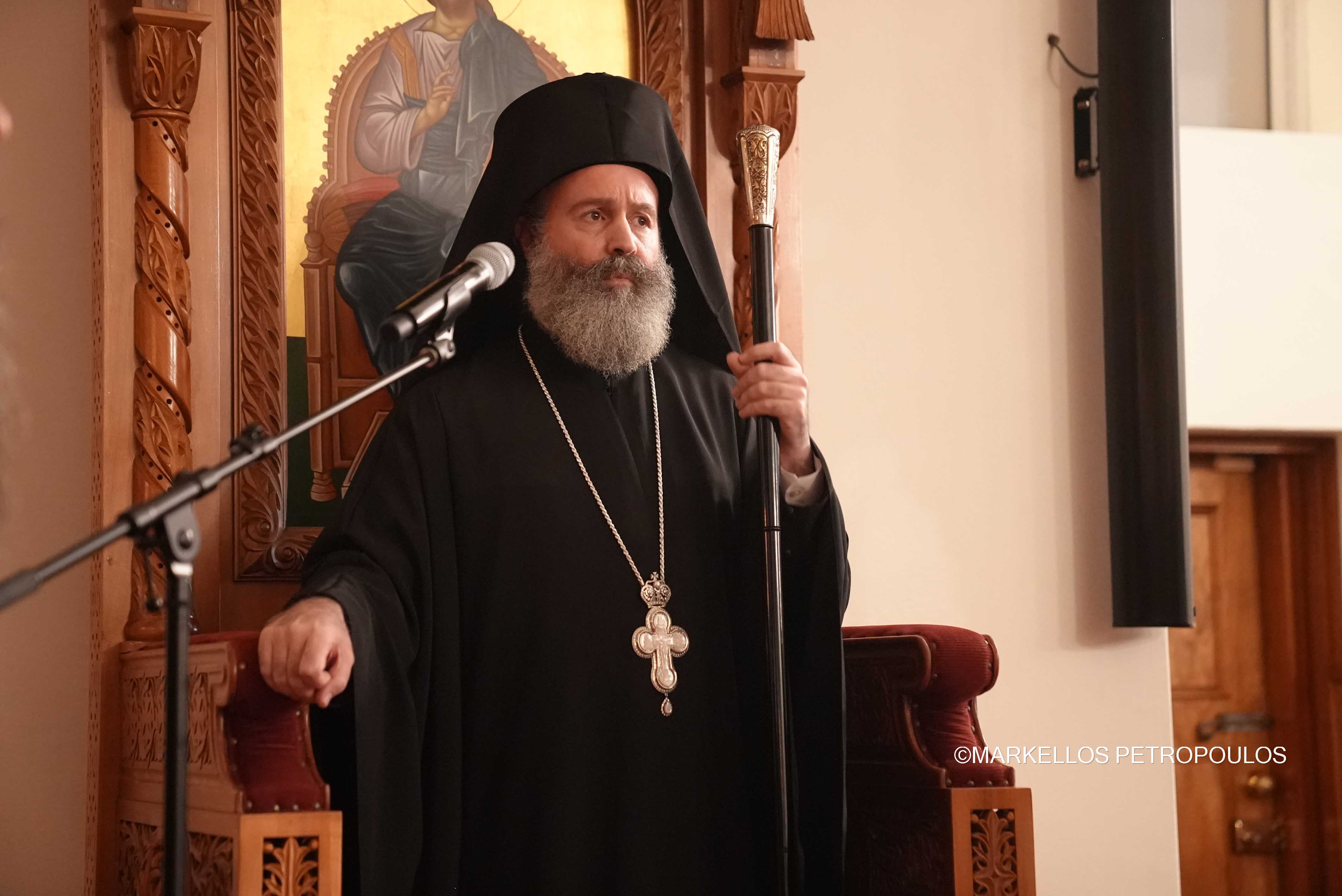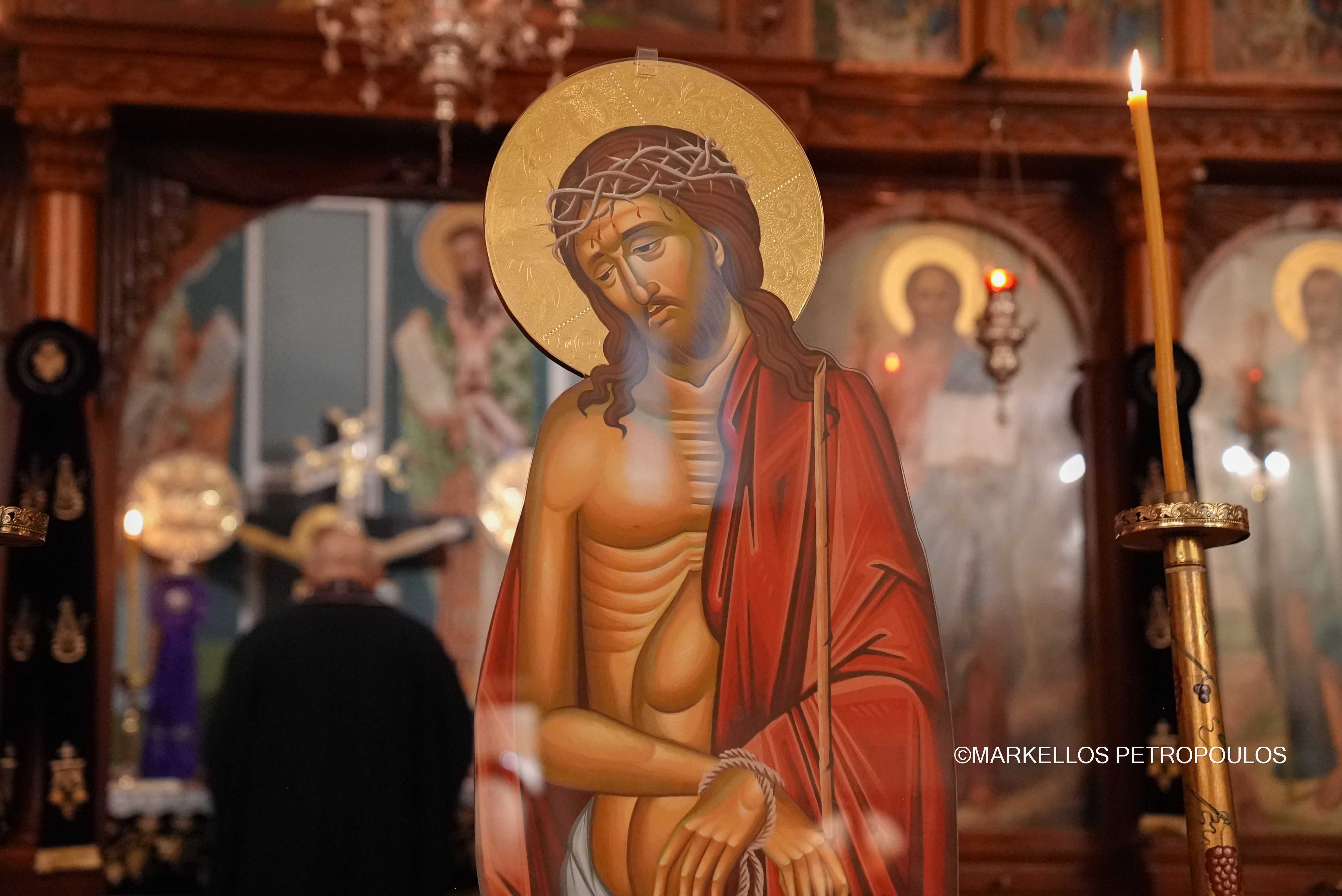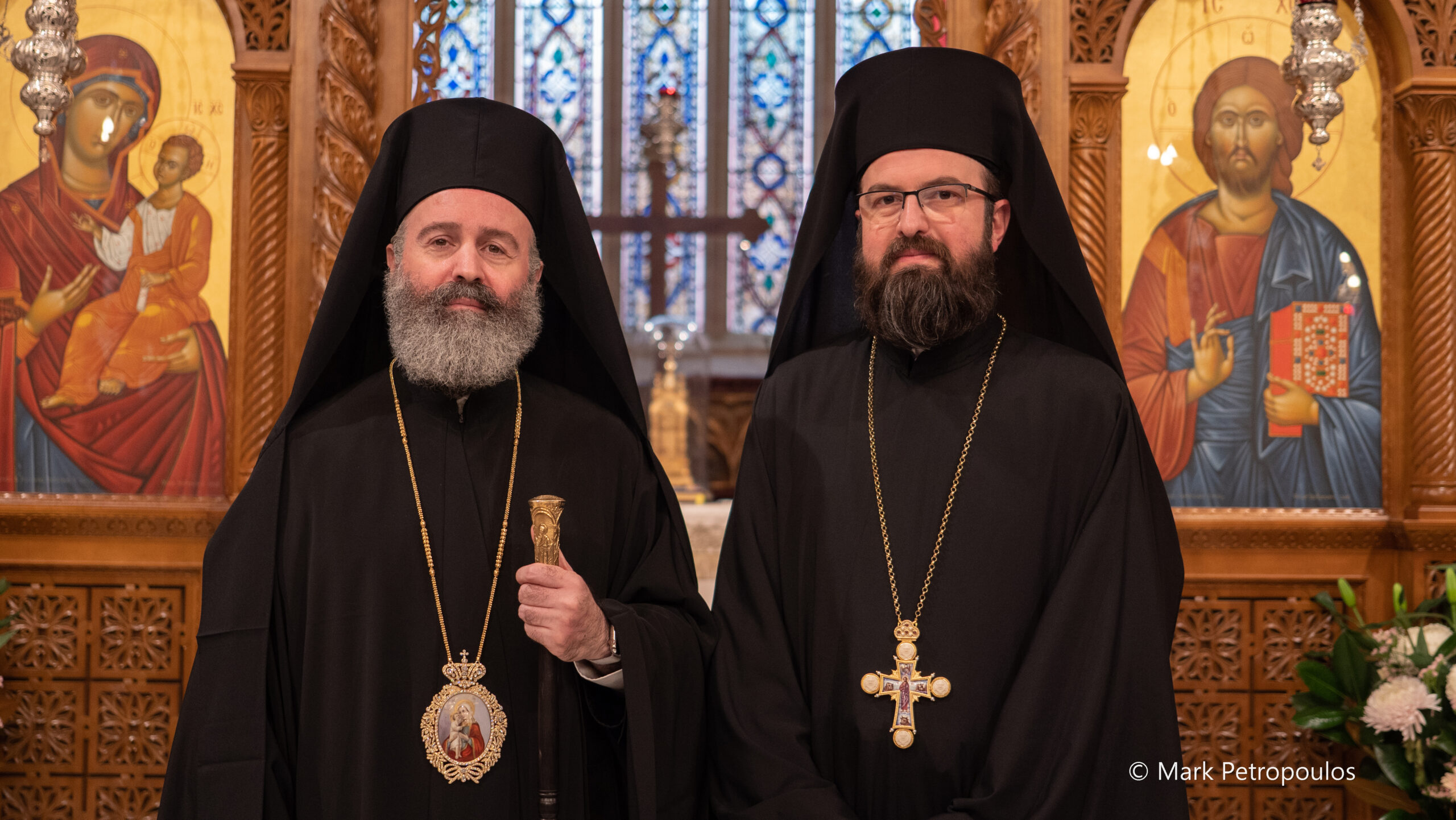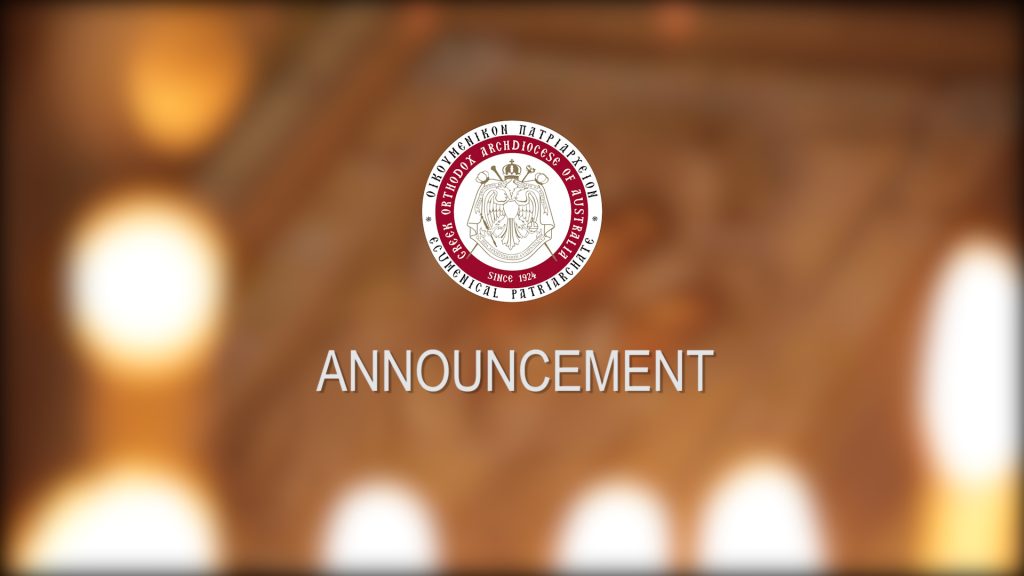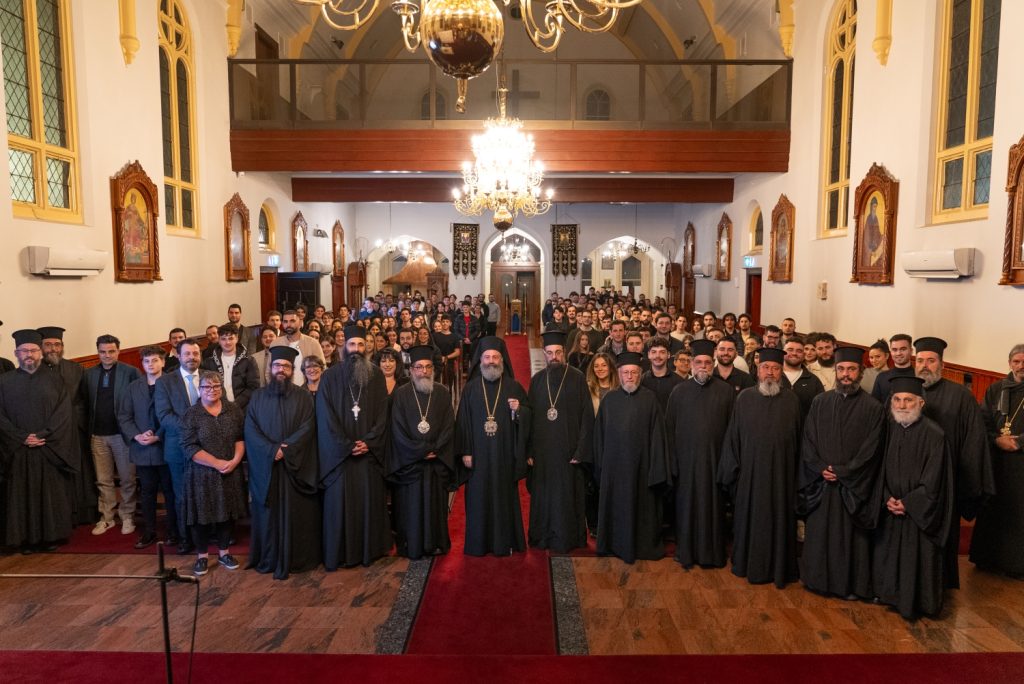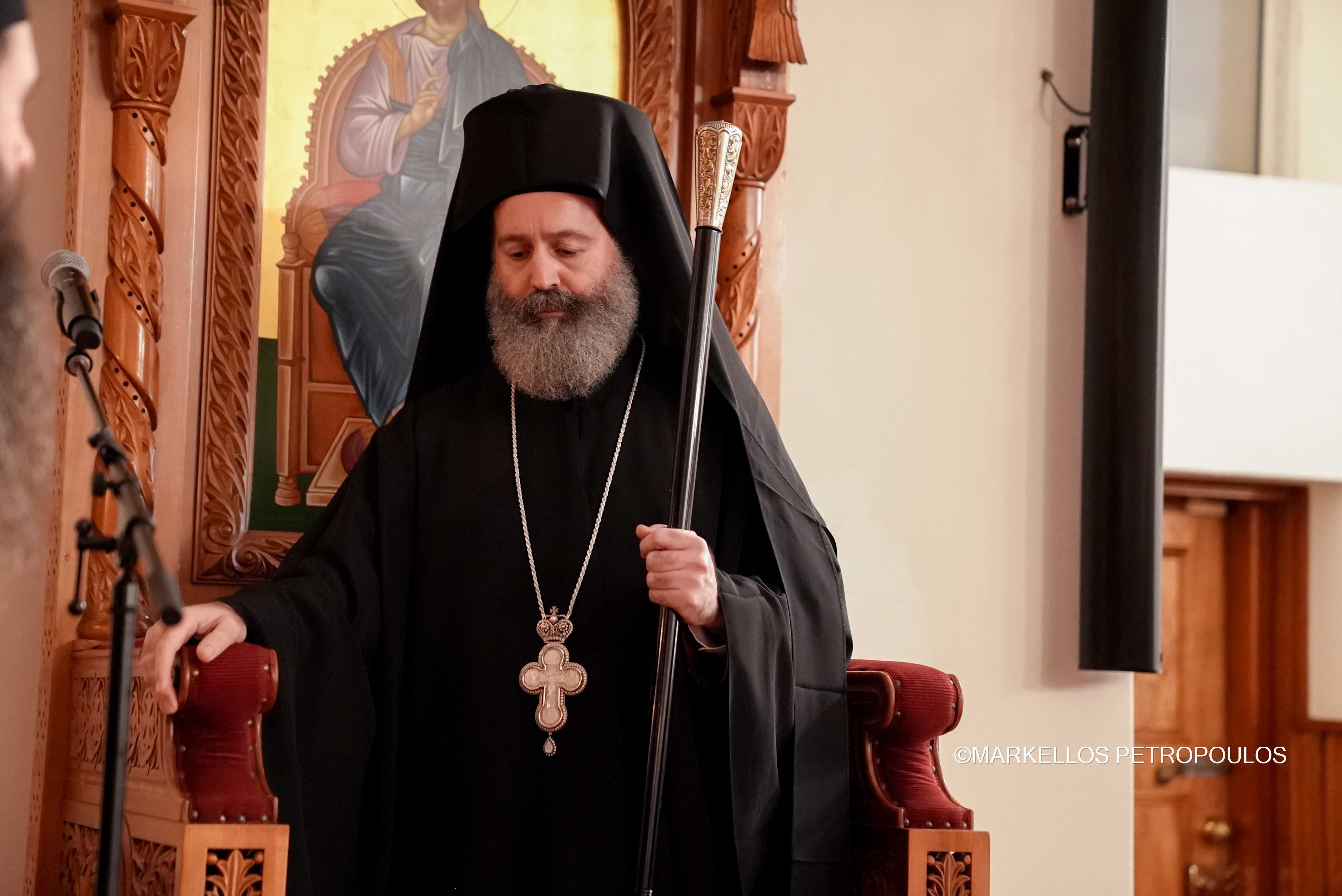
“Do not be afraid to love God and humankind. Do not be afraid to empty yourselves”, His Eminence Archbishop Makarios of Australia paternally urged the faithful of the Parish of Saint Spyridon, in the Sydney suburb of Kingsford. His Eminence visited the Parish on Great and Holy Tuesday, in the afternoon, and officiated at the third Service of the Bridegroom (Matins of Great and Holy Wednesday), and was joined by the Parish Priest, Fr. Steven Scoutas, and his Assistant Priest, Fr. Stavros Ivanos.
During the Service, the famous Troparion of Kassiani was faithfully rendered by the Parish chanters and by students of the Greek Orthodox College of Saint Spyridon. The personality, virtues and hymnographic work of Saint Kassiani were duly praised by the Archbishop during his sermon.
Afterwards, His Eminence focused his attention on the “poetic masterpiece” composed by Saint Kassiani, “The woman who had fallen into many sins…”, and appropriately interpreted the event of the anointing of the Lord’s feet with precious myrrh by a harlot woman. According to the Gospel narrative, which was the source of inspiration for Saint Kassiani, Christ’s response was: “Her many sins are forgiven, because she loved much.”
In this phrase, as the Archbishop pointed out, the first condition for our entry into the Kingdom of God is expressed. “It is the loving heart that saves humankind,” he emphasised, while all the other virtues follow this. “The more one loves God and one’s neighbour,” he added, “the easier one enters heaven.” That is why he urged the congregation: “Love as much as you can. Give your heart. Do not be afraid to love God and humankind. Do not be afraid to empty yourselves. Because emptying myself means that I put myself aside and humble myself for my neighbour and for God.”
In addition, Archbishop Makarios noted the paradox of the fact that a sinful woman, because she “loved much”, was able to pass through the gates of heaven, unlike Judas, a disciple of Christ, who was left out of His Kingdom, because he betrayed Him. This is a paradox that is found only in the Orthodox Church, as His Eminence pointed out, because in other denominations and religions there is a difficulty in accepting such changes that are the result of repentance. “Paradoxes happen in the Orthodox Church and they are pleasant paradoxes,” he concluded, “because they give us all the hope of salvation.”
